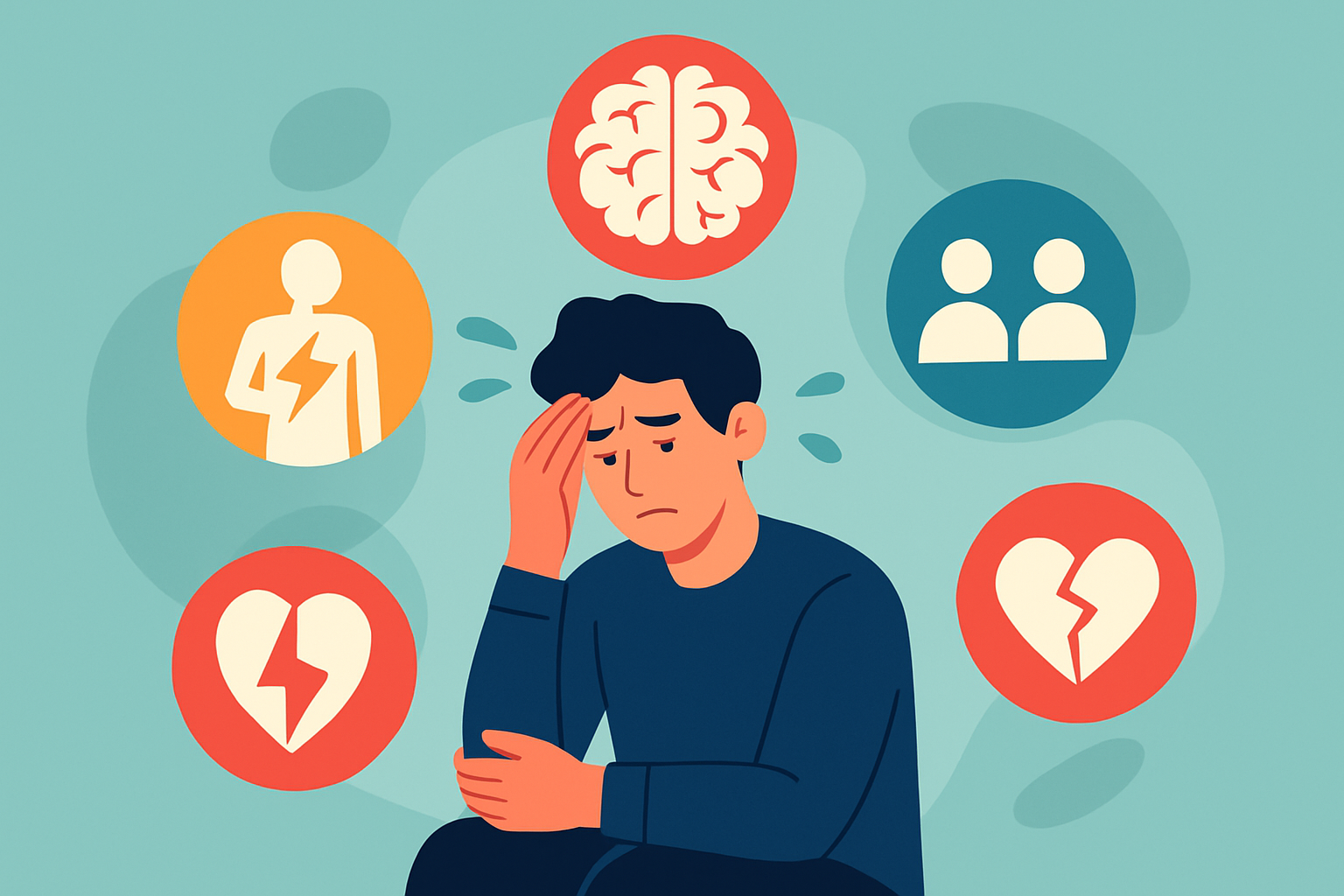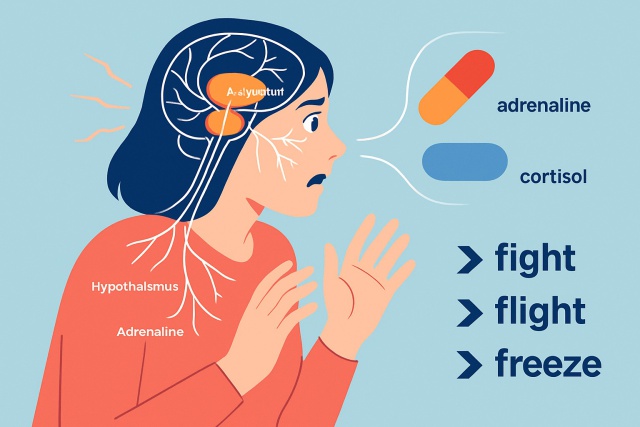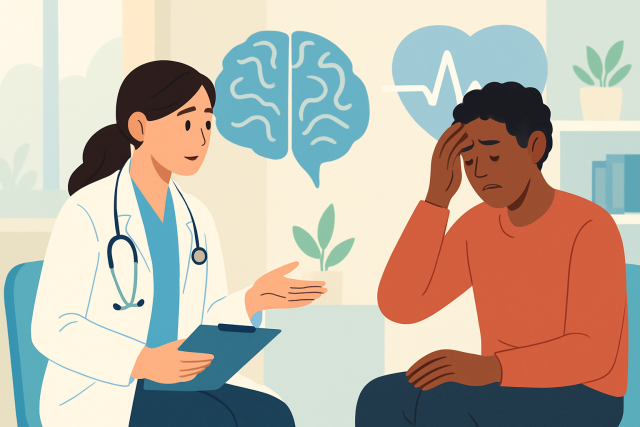
Steps To Manage Shyness Disorder Without Avoiding Socializing
Struggling with shyness disorder? Discover clear, practical steps to manage social anxiety without w...
Clinical anxiety is a common yet often misunderstood mental health issue that tends to fly under the radar. It goes beyond everyday stress or fleeting moments of worry, involving persistent and intense feelings that can seriously disrupt your daily routine.
Clinical anxiety is a well-recognized mental health condition characterized by intense, ongoing worry and fear that go beyond the usual jitters most of us experience now and then. It often shows up with physical signs like muscle tension and restlessness—little reminders your body throws in when your mind will not quit.
A lot of people tend to assume anxiety feels the same for everyone or that it’s just about feeling a bit nervous.
Clinical anxiety results from a complex blend of biological, psychological and environmental factors. Picture your brain as an orchestra where some instruments might be slightly off-key due to genetics or stress. This throws off the whole harmony and leads to anxious feelings that can hit pretty hard at times.
These causes often intertwine in their own unique dance for each individual. Take someone who might inherit a genetic tendency yet only starts to feel anxiety after life throws some serious curveballs their way.
Clinical anxiety encompasses a handful of related disorders, each bringing its own unique mix of symptoms and triggers to the table. Mental health professionals lean on these subtle differences to steer treatment in the right direction. Getting familiar with these types can really help you spot what you or a loved one might be dealing with.
| Anxiety Disorder Type | Key Symptoms | Typical Triggers | Average Duration |
|---|---|---|---|
| Generalized Anxiety Disorder | Constant, often overwhelming worrying, restlessness, muscle tension that just won’t quit | Everyday stress, pesky health concerns, and those nagging money problems | Usually sticks around for 6 months or more, sometimes feeling like it’s here for the long haul |
| Panic Disorder | Out-of-the-blue panic attacks, heart palpitations that can make you feel like you’ve run a marathon | Stressful situations, and occasionally those mysterious unknown triggers | Lasts anywhere from a few breathless minutes up to a few hours (quite the rollercoaster) |
| Social Anxiety Disorder | Intense fear of social situations, accompanied by that cringeworthy feeling of embarrassment | Public speaking, basically any social interaction where you feel like all eyes are on you | Often chronic, with flare-ups that come and go like unwelcome guests |
| Specific Phobias | A strong, almost irrational fear tied to specific objects or situations | Animals, heights, injections — things many of us dread | Duration can vary but often hangs around stubbornly |
| Agoraphobia | Fear of places where you worry escaping might turn into an epic hassle | Crowded or wide-open spaces that make you feel trapped | Usually a long-term companion |
Anxiety disorders can sneak into daily life in many ways. For some, social situations become a huge mountain to climb. For others, panic attacks strike out of the blue like a sudden lightning bolt.
Clinical anxiety sneaks into almost every corner of life—physical health, emotional well-being, relationships and even the way we think. That persistent worry can wear you down and leave you exhausted. It strains your social bonds and turns simple tasks into uphill battles.
Clinical anxiety feels a bit like a smoke alarm that just won’t quit ringing, even though there’s no fire to speak of. It keeps you on edge, in a constant state of alert, slowly wearing down both your mind and body. It’s exhausting, really, like your brain is stuck playing a never-ending game of ‘What if?’
These challenges often lead to noticeable shifts in behavior, such as avoiding situations that trigger anxiety or leaning on substances like alcohol for a quick fix. While these moves might offer a brief sense of relief, they usually end up making anxiety stick around longer.

Diagnosing clinical anxiety usually kicks off with a thorough assessment by healthcare professionals. They typically start by chatting about your symptoms, then move on to tried-and-true standardized questionnaires. Every now and then, they might order some medical tests too—just to rule out any physical issues that could be masquerading as anxiety.
Getting a professional diagnosis is vital since anxiety symptoms can easily masquerade as those of other conditions. It really takes a trained clinician to untangle the mess and provide an accurate evaluation along with the best treatment plan. Reaching out for help sooner rather than later can stop symptoms from snowballing and usually results in a noticeably better quality of life.
Treating clinical anxiety typically calls for a blend of therapy, medication, lifestyle tweaks and some good old-fashioned self-help strategies.
Combining different approaches often turns out to be the secret sauce for the best results, with many people noticing improvements anywhere from a few weeks to several months.
Recovery from clinical anxiety is absolutely within reach. With the right therapy and a bit of patience in building coping skills, you will find yourself gradually taking the reins back from those symptoms and steering toward a more balanced, fulfilling life. It’s a process, but trust me, it’s one worth the effort.
Professional treatment is important but there are also everyday, practical steps you can take to keep anxiety symptoms in check.
Managing clinical anxiety really calls for a lot of patience and a good dose of kindness to yourself, because progress can be a slow dance with some unexpected twists. It’s vital to celebrate the small victories along the way and remember that setbacks are not a sign that you’ve thrown in the towel.

Struggling with shyness disorder? Discover clear, practical steps to manage social anxiety without w...

Anxiety paralysis can leave you frozen in moments of intense fear. Learn what causes this, its physi...

Stop anxiety before it begins with seven expert-backed strategies designed to help you stay calm, fo...

Explore a complete guide to differential diagnosis for anxiety, uncovering conditions behind symptom...